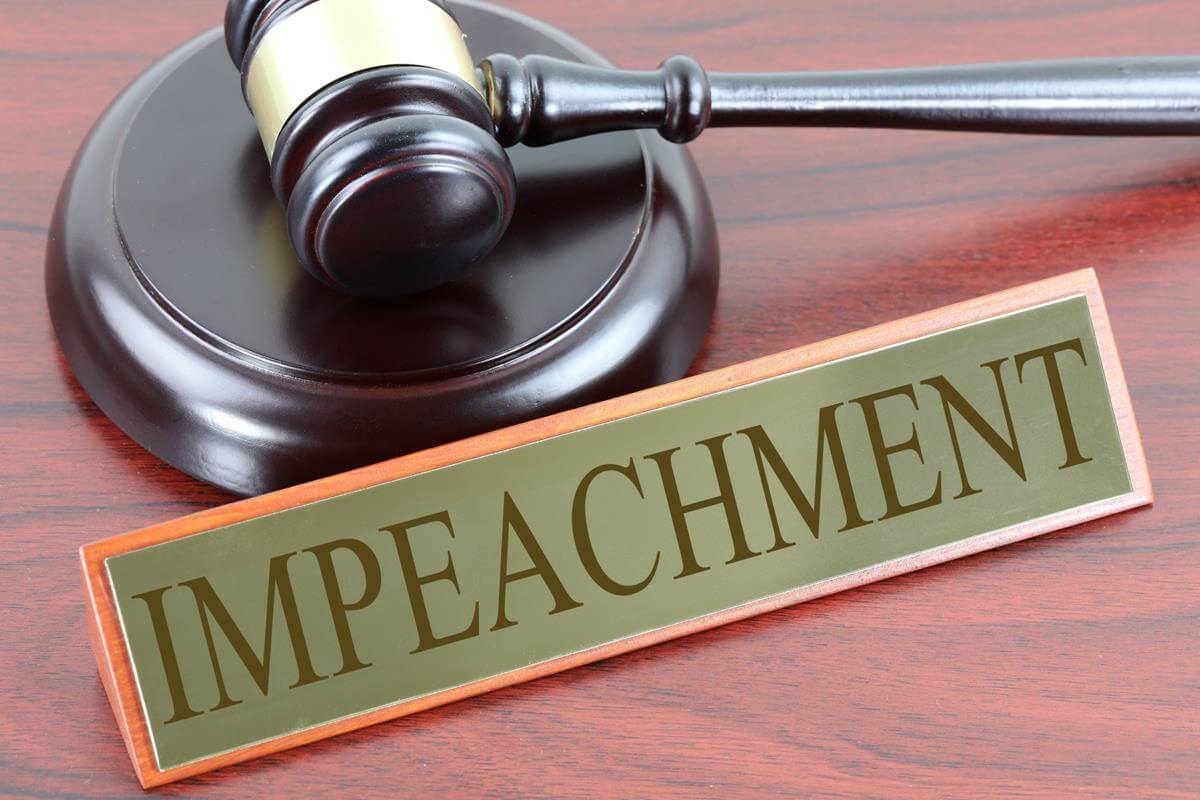Senate’s remand of the Articles of Impeachment to the House of Representative – a constitutional dilemma
Atty. Donna Mae Pearl C. Dumaliang
Atty. Rhenelle Mae O. Operario
JULY 2025

However, when the Senate convened as an impeachment court, it opted to remand the Articles of Impeachment to the House of Representatives, until the House certifies the following: (1) that there has been no violation of Article XI, Section 3(5) of the Constitution, which provides that “no impeachment proceedings shall be initiated against the same official more than once within a year”; and (2) that the 20th Congress remains willing and ready to pursue the impeachment proceedings against Vice President Sara Duterte. 2
These developments call into question the legality and constitutionality of the Senate’s act of remanding the Articles of Impeachment to the House of Representatives.
Under the 1987 Philippine Constitution, the power of impeachment is vested exclusively in the Legislative Department. Being bicameral in structure, this power is divided between the two chambers, each with a distinct constitutional duty: (a) the House of Representatives has the constitutional duty to initiate and approve the Articles of Impeachment; and (b) the Senate has the constitutional duty to try and decide all cases of impeachment.
The pertinent portion of the Constitution reads:
Accountability of Public Officers
SECTION 3. (1) The House of Representatives shall have the exclusive power to initiate all cases of impeachment.
(2) A verified complaint for impeachment may be filed by any Member of the House of Representatives or by any citizen upon a resolution of endorsement by any Member thereof, which shall be included in the Order of Business within ten session days, and referred to the proper Committee within three session days thereafter. The Committee, after hearing, and by a majority vote of all its Members, shall submit its report to the House within sixty session days from such referral, together with the corresponding resolution. The resolution shall be calendared for consideration by the House within ten session days from receipt thereof.
(3) A vote of at least one-third of all the Members of the House shall be necessary either to affirm a favorable resolution with the Articles of Impeachment of the Committee, or override its contrary resolution. The vote of each Member shall be recorded.
(4) In case the verified complaint or resolution of impeachment is filed by at least one-third of all the Members of the House, the same shall constitute the Articles of Impeachment, and trial by the Senate shall forthwith proceed.
(5) No impeachment proceedings shall be initiated against the same official more than once within a period of one year.
(6) The Senate shall have the sole power to try and decide all cases of impeachment. When sitting for that purpose, the Senators shall be on oath or affirmation. When the President of the Philippines is on trial, the Chief Justice of the Supreme Court shall preside, but shall not vote. No person shall be convicted without the concurrence of two-thirds of all the Members of the Senate.
xxx”
Former Supreme Court Associate Justice Adolfo Azcuna, however, expressed a contrary view, stating that the remand is not unconstitutional but rather “unique and unprecedented but allowable.” He explained that the remand serves as a mechanism to facilitate the transition of the impeachment case from the 19th to the 20th Congress. What is essential, according to Justice Azcuna, is that the Senate has already acquired jurisdiction over the impeachment case when it convened as an impeachment court. The Senate did not terminate or dismissed the case, what is being done was to ensure the seamless continuation of proceedings despite the change in congressional terms, an unprecedented situation in which an impeachment case was caught between the two Congresses.
In his view, the Senate’s Act of remanding the case to the House permits the 20th Congress to proceed with trying the case on the same Articles of Impeachment, accomplishing a cross-over between 19th Congress and 20th Congress. 5
In recent developments, the House of Representatives has already complied with the first condition set by the Senate by certifying that there was no violation of the one-year bar rule under Section 3(5), Article XI of the Constitution. However, the second requirement, which pertains to the affirmation that the 20th Congress is willing and ready to pursue the impeachment proceedings, cannot yet be fulfilled. This is because the members of the new Congress are scheduled to formally convene only on July 28, during the opening of its First Regular Session. 6
Given the unusual nature of the situation and the differing views expressed by legal experts, this issue continues to raise important questions that deserve careful thought and constitutional reflection. Whether the Senate’s decision to remand the Articles of Impeachment will eventually be accepted as a practical response to an unprecedented circumstance, or criticized as a step beyond its constitutional role, remains to be seen. In the midst of this uncertainty, this discussion aims to shed light on the legal issues at hand and to help foster a deeper and more informed public understanding of the impeachment process.
FOOTNOTES
*The views and opinions expressed are based on applicable laws, constitutional provisions, and/or jurisprudence in force at the time of writing, and do not constitute legal advice or an official stance on any political matter. Subsequent legal or factual developments may affect the relevance or applicability of the views and opinions herein expressed.
